Eight Key Scenes From SAP's Channel Partner Summit
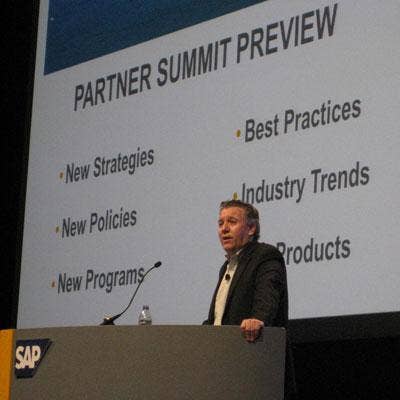
Promises For SAP Partners
More than 560 solution providers joined SAP executives in Savannah, Ga., this week for SAP's annual Channel Partner Summit.
Once known for selling big software applications directly to big companies, SAP has been devoting more attention to its channel partners recently, including making a promise last August that all sales to SMB customers (under $500 million) will be made exclusively through the channel.
Kevin Gilroy, senior vice president of Ecosystems & Channels for SAP America, outlined some of the changes in the company's policies and operating procedures that are expected to aid resellers. "It has never, ever, been a better time to be a partner with SAP," he said.
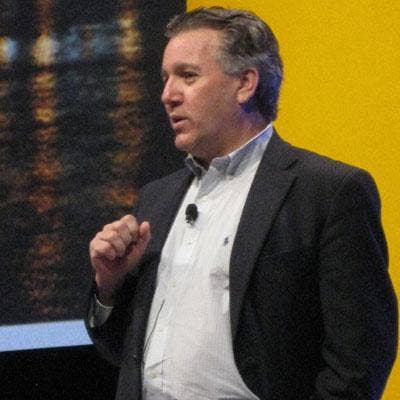
More Opportunities, Fewer Conflicts
Gilroy outlined some of the initiatives and policy changes it has undertaken to help channel partners. SAP, for example, has dropped its requirement that solution providers pay up front 50 percent of software license purchases.
SAP also said the channel will take the lead in going after 4,600 large enterprise prospective customers in North America, a change from SAP's current practice of largely restricting resellers to small and midsize customers. While SAP sales representatives can help close those deals, solution providers will own the customer relationship. And to avoid potential conflicts SAP has instituted a "comp-neutral" compensation model for its sales representatives.
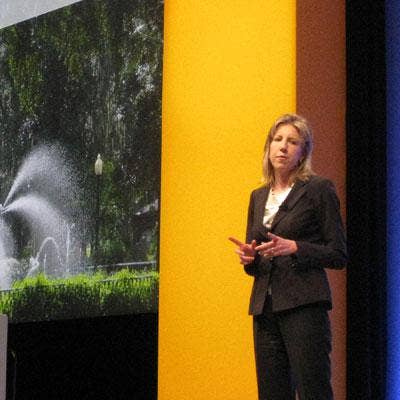
Putting Its Money Where Its Marketing Is
SAP is committed to spending the equivalent of 10 percent of this year's channel sales on channel marketing initiatives, said Michele Weber, vice president of ecosystems and channels marketing for SAP North America.
In the second quarter SAP will roll out new marketing and demand generation services for partners, including online marketing and volume telemarketing assistance, Weber said.
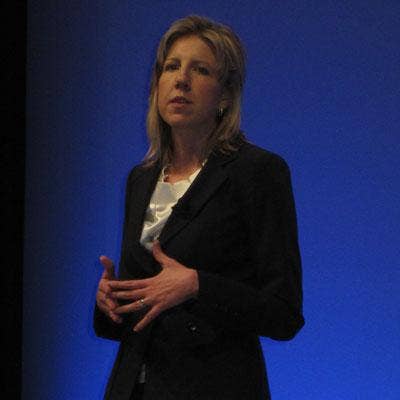
Partners Must Do Their Share
SAP has a goal of getting partners to invest more resources in their own marketing and demand generation efforts. Gilroy said some partners are "under-invested in marketing."
Weber said partners should ask themselves a series of questions to find out if they are doing enough on the marketing side: What percent of revenue does the partner devote to marketing? Is the marketing director a "change agent" within the company? And what volume of sales inquiries and leads are needed to achieve an expected contribution to revenue?
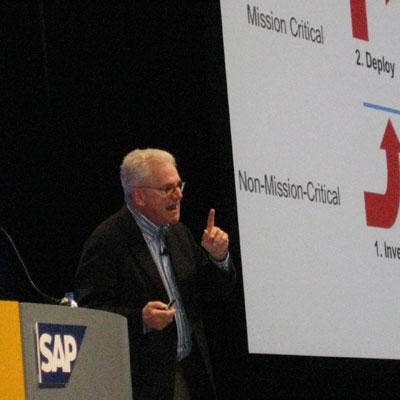
The Threat Of Commoditization
"Crossing the Chasm" author Geoffrey Moore said globalization has sped up the process of commoditization, forcing companies to continuously innovate to stay ahead of the commodity curve.
In a keynote presentation, Moore said everything businesses do are either "core," the things that make them unique, or "context," those processes needed to run a business, but really don't add value or distinguish a company in the marketplace.
His advice: Businesses should reduce spending on context processes as much as possible, either through outsourcing, standardization or automation, and repurpose resources for the core activities that differentiate a company
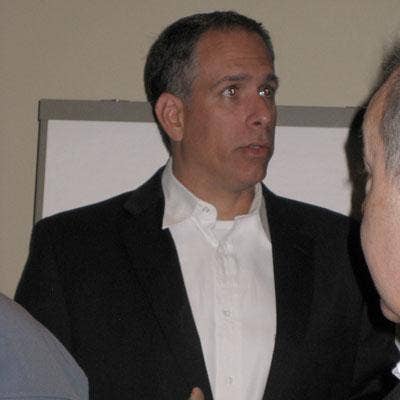
Making The Pitch For Business ByDesign
SAP is cranking up sales of its Business ByDesign on-demand ERP application set and its aggressively recruiting channel partners to carry the product. "The opportunity for SAP and our partner ecosystem is phenomenal," said Frank Iannotti, vice president of Business ByDesign in North America, shown here speaking with channel partners following a presentation.
The company expects to win 1,000 new customers for Business ByDesign this year and partners will account for more than 60 percent of those sales, Iannotti said. "The commitment is to be fully 100-percent channel by next year," he said. This year "is the year of building out the channel."
While Iannotti didn't disclose specific sales numbers, he told the more than 75 solution providers in the session that Business ByDesign sales grew 224 percent in last year's fourth quarter compared to the third quarter.
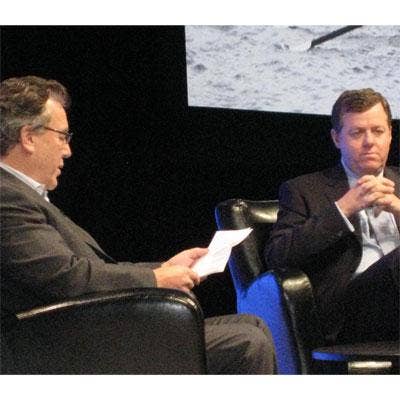
The Big Picture
Today the channel accounts for about 20 percent of SAP sales in North America and the company hopes to double that to 40 percent within a few years. "We've set out some really aggressive goals as a company and we want to grow our channel, and we're putting those goals on our general managers," said Robert Courteau (right), who was named president of SAP North America last month, speaking on-stage with Gilroy.
SAP recently had a meeting for its sales representatives in Las Vegas where Courteau emphasized that expanding partner sales is an executive priority. "What we're seeing right now is a big opportunity for business transformation," Courteau said. "For us it's about getting to new customers. And that's why the channel is so important."
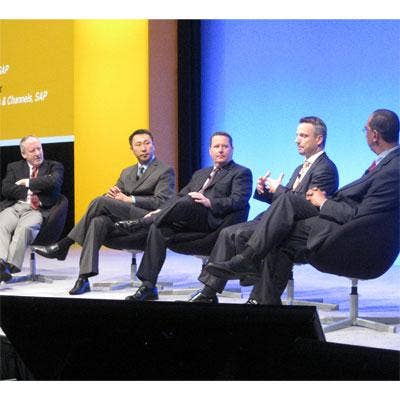
Making The Transition To The Cloud
A panel of SAP executives, customers and channel partners discussed the topic of making the move to cloud computing and Software-as-a-Service applications. Moderated by channel consultant Bruce Stuart (far left), the panelists included (left to right) Alan Fang, chief operating officer of solution provider ERP Logic; Jeff Stiles, SAP senior vice president of SME marketing; Fritz Neumeyer, SAP senior vice president of ecosystems and channels; and Rocque Marinho, head of business intelligence for SAP customer Cobb Energy.
Fang said his company has changed its sales organization and processes, given that the sales cycle for cloud systems is very different from on-premise IT systems. But his advice for partners was, "Don't be scared to transform."
ERP Logic, which contracted to become a Business ByDesign reseller in December, said his company has invested $1 million in the effort and expects a payback of 30 to 40 percent over the next two to three years on the effort.